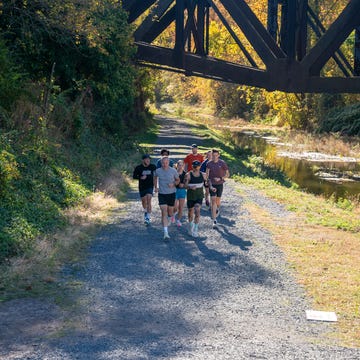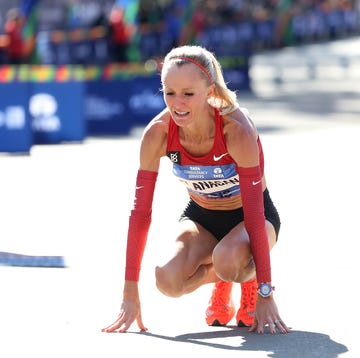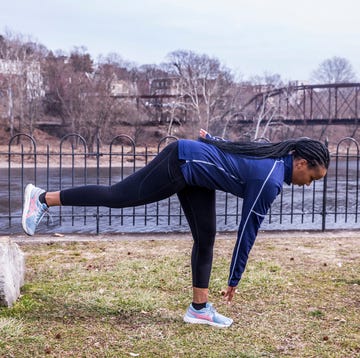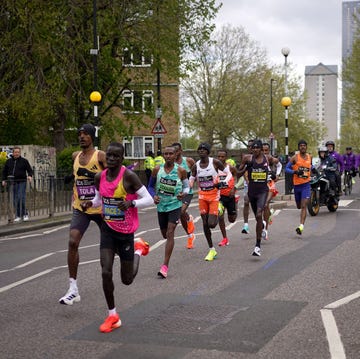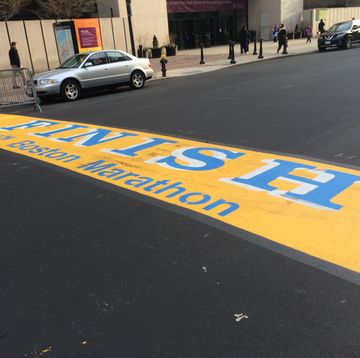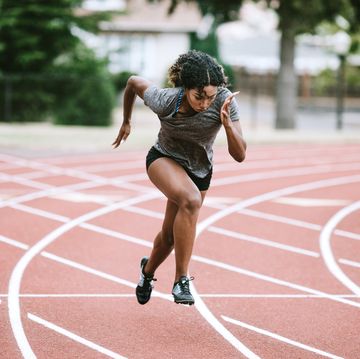Ultrarunning's New Master
for massage, adds, We help the other stay focused, keep each other in. I’m not really looking forward to the energy bar and gels in my fanny pack, so I ask my training partner, Scott, what he’s having for “lunch.” “Kalmata olives and humus stuffed into pita halves,” he says. Now that sounds creative and appetizing. Definitely not your typical trail running training menu, especially out here with 20 miles still to cover around the base of Mt. Rainier. Then again, Scott Jurek isn’t your typical runner.
Just as most non-active people believe runners to be eccentric, the average runner sees the ultrarunner as even more so. Classified as any distance that is further than the standard 26.2 mile marathon, ultramarathons typically cover distances between 50 kilometers and 100 miles, can be run at any time of year, and on all types of terrain. Perhaps the most recognized and contested 100-mile trail race in the country, if not the world, is the Western States 100 Mile Endurance Run.
Steeped in history and tradition (it started as a horse race), Western States runs from Squaw Valley (Olympic Village), California to Auburn, California in late June. The course pits runners against snow and altitude in the Sierra Nevada Mountains, the heat searing canyons of the American River, and long, night hours of rough trail running. The winners of the race forever garner legendary status in the world of ultra running.
Winning Western States in his first two attempts, Jurek, 27, is a rarity in the ultra scene. Experienced, master-aged runners normally dominate this sport, in both participation numbers and appearances on the victory stand. Auburn, California’s Tim Twietmeyer, 42, is one such runner, having won the Western five times after ten years of flirting with the top. “It’s unbelievable to win Western States one time, much less five,” says Twietmeyer of his victories.
Unlike Twietmeyer, Jurek finds himself one of the few his age engaged in ultrarunning. He is able to race successfully in a sport that requires patience, determination and dedication: characteristics that normally take a lifetime to acquire. His successes stem from his beliefs, way of life and attitude. “Getting started with this sport seemed like a natural progression. I spent a lot of time Nordic skiing and I ran the trails to stay in shape for it. I loved being out on the trails. On the suggestion of a friend I competed in my first ultra, the Minnesota Voyageur 50 Miler in 1994. I placed second. It was one of the hardest things I had ever done. I really enjoyed it and I saw I had potential for success.” He was right. He returned to the Voyageur the next four years, garnering three wins and the present course record.
At the 1999 Western States 100 Mile Endurance Run, Jurek talked of his tactics and plans as if he were going to be leading and ultimately winning the race. His pre-race demeanor and positive self talk surprised many of the veteran runners he was to face. Virtually unknown in the circles of ultrarunning, Jurek had never been to Western States before and was not a favorite to even contend. Not only did he execute his race plans perfectly, he led from start to finish, a goal he never doubted he would fulfill.
Returning to Western States in 2000, Jurek found himself under more pressure while looking to repeat his prior fortunes. “People no longer doubted my abilities. The depth of the field assembled for this year’s race was intimidating. I knew they were all gunning for me.” Familiar with the course and competition, however, Jurek remained confident.
In fourth place at one point and fading badly, the race proved more difficult than expected. “I felt that I was not as well rested for the event. I may have over-raced in the months leading up to Western and I was still feeling the lingering affects from a bike accident.” Collecting himself, Jurek regained his focus, and took the lead. His 2000 win provided the satisfaction he had been waiting for since finishing first in ’99. “Coming onto the track in Auburn was the moment I had been training for all year. I thought about it for the whole race. I took it all in and just absorbed all the energy from the cheering crowds in the stands. They ignited me. It was ten times better than the year before. This was a harder fought victory.”
A
Duluth, Minnesota native, Jurek has recently settled in Seattle, WA,
finding a career in the health care field for which he had been
searching, as the Director of Physical Therapy at the Institute for
Preventive Solutions.
him, cant perform well and remain healthy on such diets. Jurek,
Jurek has been able to enjoy positions that focus on preventative
medicine and individualized care. Seattle’s geography and culture also
appealed to Jurek. “I’ve always been attracted to the west—where else
can you be so close to the coast and the mountains?” Jurek comments,
adding, “I really relate to the progressive values and attitudes that
are few for the couple. They do not watch television and spend the time.”
It
may seem a very lonely and individualized sport, but many ultrarunners
welcome the assistance of others to help them through the long races
commuting to work on his bike, practicing yoga, skiing and backpacking
support system in his wife, Leah, 25, whom he married in 1996. Their
relationship cultivates an atmosphere that encourages success. Jurek
explains, “We respect each other’s goals, allow each other’s
differences, and help each other grow.” Leah, who is going to school
for massage, adds, “We help the other stay focused, keep each other in
the right mental frame of mind and share each other’s fire, whether it
be for my schooling or Scott’s running.” Living in a small downstairs
apartment near the shores of Seattle’s Lake Washington, distractions
finish line first for a second year in a row. Even before he began
they are not working or training in the garden, reading or cooking.
Ultrarunning
is a way of life for those who take it seriously. Training regimens and
optimum diets are always under scrutiny. While subsisting as a vegan
Back-to-back training runs of six hours each, and hill repeats with
puts to rest the notion that distance runners, even extreme ones like
him, can’t perform well and remain healthy on such diets. Jurek
initially became a vegetarian for health reasons, but after learning
for massage, adds, We help the other stay focused, keep each other in
environmental damage caused by the meat industry. He spends hours every
has also mastered many of the aspects of ultrarunnings training
enjoys.
Jurek
has also mastered many of the aspects of ultrarunning’s training.
“Back-to-back training runs of six hours each, and hill repeats with
long climbs, are the corner stone of my workouts.” He cross-trains by
commuting to work on his bike, practicing yoga, skiing and backpacking.
He focuses on getting a lot of sleep, food, stretching and massage when
history and prestige in the ultrarunning community. I know I can.
Even
when doing everything required, Jurek’s racing hasn’t always been
Running Shoes - Gear,
Jurek had to drop out of The Hardrock 100 in Silverton, Colorado, a
race dubbed as one of the most difficult 100 milers in the world. Then,
in September, Jurek traveled to southern California for the Angeles
him, cant perform well and remain healthy on such diets. Jurek
put in contention for the opportunity to win both California 100
the right mental frame of mind and share each others fire, whether it
the event Jurek had his doubts because of training he considered “too
low-key.” He dropped out at the 75M mark. “I wasn’t focused. I was very
tired and the heat really drained me. I was fighting a lagging illness
and it had been such a long racing season,” he said, “I was mentally
having trouble getting out to do the long runs needed.”
Back
at the foot of Rainier, refueled by a lunch courtesy of the vegan
puts to rest the notion that distance runners, even extreme ones like
by the Carbon Glacier. As we start the
Back-to-back training runs of six hours each, and hill repeats with
puts to rest the notion that distance runners, even extreme ones like
the event Jurek had his doubts because of training he considered too
celebrating his current win, he was already planning his return for the
third. “Western States is the big one,” he says. “This race has so much
history and prestige in the ultrarunning community. I know I can
improve as a runner and I’m excited to return again and overcome the
challenges that lie ahead. A three-peat is my goal.”

